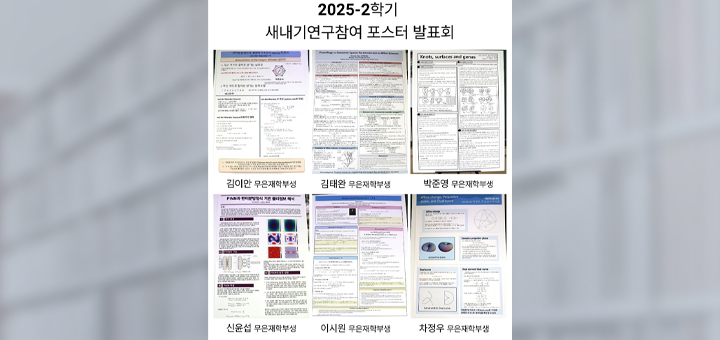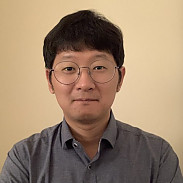콜로퀴움&세미나
-
2026 | 01.26~01.30
The 21th ILJU School of Mathematics- Banach Spaces and Related Topics
Lecture Room: KIAS, June E Huh Center for Mathemat…
-
2025 | 12.19
Mathematical Physics Seminar
Title:Seminar series in General RelativitySpeaker:…
-
2025 | 12.18
CGP Seminar
Title:On Symplectic FillingsSpeaker:Zhengyi Zhou (…
-
2025 | 12.18
Ph.D. Defense
Title:Topological Data Analysis on Graphs with Pat…
-
2025 | 12.17
CGP Seminar
Title:On Symplectic FillingsSpeaker:Zhengyi Zhou (…
학술대회
-
2026 | 01.26~01.30
The 21th ILJU School of Mathematics- Banach Spaces and Related Topics
<The 21th ILJU School of Mathematics- Banach Sp…
-
2026 | 01.19~01.23
Korea PDE Winter School #12
Korea PDE Winter School #12개최 및 등록 안내일시: 2026년 1월 …
-
2025 | 12.08~12.12
IBS-CGP Conference
Title:Conference on Representations of Quivers in …
-
2025 | 02.24~02.28
IBS-CGP Workshop
<IBS-CGP Workshop>
-
2025 | 02.12
Workshop on Ergodic Theory and Related Fields
<Workshop on Ergodic Theory and Related Fields&…
-
2025 | 02.11
Workshop on Ergodic Theory and Related Fields
<Workshop on Ergodic Theory and Related Fields&…
-
2025 | 02.08~02.12
Workshop on Relative Langlands
<Schedule>-2025.02.0814:00~16:00Title:Anintr…
연구 하이라이트
MORE >수상소식
-
[차재춘 교수] 포스텍 수학과 차재춘 교수, 2025년 '한국과학상' 수상
2025.12.19 -
[수학과 대학원생 강민지, 이민수, 정승훈] 2025 가을 학술대회 포스터우수상 수상자
2025.12.16 -
[수학과 학부생 김민준, 백광운] 제43회 대학생 수학 경시대회 수상자(김민준, 백광운 학생)
2025.12.16 -
[이경석 교수] 포스텍 수학과 이경석 교수, 제17기 포스코사이언스펠로 선정
2025.10.24 -
[김진영 대학원생] POSTECH 수학과 '한국분자·세포생물학회 2025 정기학술대회 (KSMCB 2025)'에서 우수 포스터상 (Outstanding Poster Award) 수상
2025.10.17












pc.png)
모바일.png)















.png)











